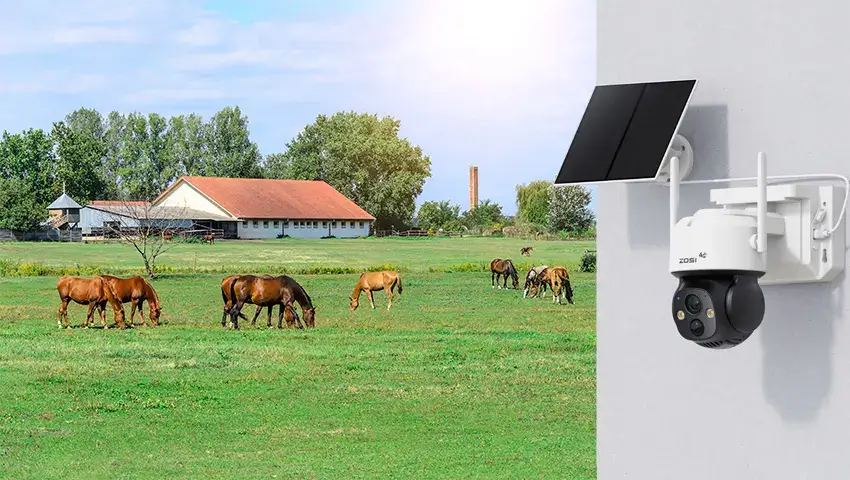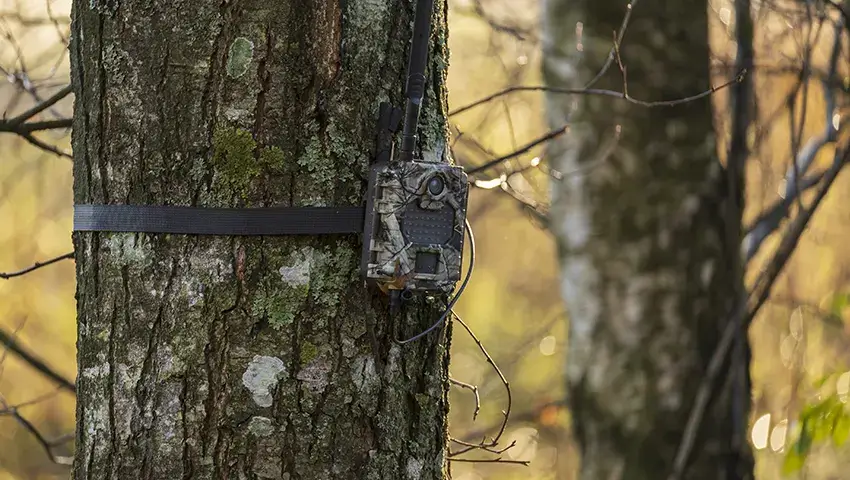Farm security camera systems offer comprehensive protection for your property, livestock, crops, and equipment, mitigating the risks of theft and vandalism. When it comes to securing your farm, a reliable security camera system is essential. Investing in the right system can give you peace of mind, whether you’re monitoring from home or remotely. This guide will walk you through the key factors to consider when choosing the best farm security camera system for your needs.
Contents
Key Factors to Consider
1. Coverage Area
Your farm’s size and layout will determine the type and number of cameras you need. A large farm with sprawling fields may require cameras with a wide field of view, such as PTZ (Pan-Tilt-Zoom) cameras, to cover large areas. For smaller areas like barns or equipment sheds, a few strategically placed bullet or dome cameras may suffice.
2. Resolution
The clarity of the footage is crucial for identifying faces, vehicles, or animals. High-resolution cameras, typically 1080p or higher, ensure that details are clear and identifiable. While higher resolution cameras can be more expensive, the added detail can be vital, especially if the footage needs to be used as evidence.
3. Weather Resistance
Farm cameras are exposed to various weather conditions, so durability is key. Look for cameras rated with an IP (Ingress Protection) rating, such as IP66 or higher, which ensures that the cameras are waterproof and dustproof. Cameras designed for outdoor use will withstand rain, wind, and extreme temperatures.
4. Night Vision
Most incidents occur after dark, making night vision essential. Choose cameras with infrared (IR) technology for clear footage at night. Ensure the camera has a range that covers your entire property to avoid blind spots.
5. Wireless vs. Wired
Deciding between wireless and wired cameras depends on your infrastructure. Wireless cameras are easier to install, especially in remote areas where wiring might be difficult. However, wired cameras tend to be more reliable and provide a stable connection, making them ideal for high-traffic areas.
Types of Cameras
1. Bullet Cameras
These are great for monitoring large areas such as fields or farm perimeters. They are weatherproof, easy to install, and have a long-range vision.
2. Dome Cameras
Dome cameras are discreet and vandal-resistant, making them ideal for monitoring barns, warehouses, or equipment sheds. Their design makes it difficult for intruders to tamper with them.
3. PTZ Cameras
Pan-Tilt-Zoom cameras provide flexible monitoring. You can adjust the camera’s angle remotely to focus on specific areas or zoom in on activities. These cameras are excellent for farms with large, open spaces.
4. Wireless Cameras
Wireless cameras are ideal for areas without power outlets or where running cables is difficult. They can be powered by batteries or solar energy, offering flexibility in installation.
5. IP Cameras
IP cameras connect to the internet and allow you to monitor your farm remotely via a smartphone or computer. They often come with cloud storage, which keeps footage safe even if the camera is damaged or stolen.
Installation Tips
1. Placement:
Proper camera placement is crucial for ensuring comprehensive coverage. Position cameras at entry points like gates, barns, and storage areas, and ensure that wide areas like fields are fully covered. Avoid placing cameras too high or too low to avoid blind spots.
2. Power Supply:
If you’re in a remote area, consider solar-powered cameras, which are ideal for farms that lack easy access to electricity. Wired cameras are best if you’re in an area with a stable power supply.
3. Additional Features
- Motion Detection: Many cameras come with motion detection capabilities that only record when movement is detected, saving storage space and reducing unnecessary footage.
- Cloud Storage: For added security, consider a system that offers cloud storage, ensuring that your footage is safe even if your cameras are tampered with or stolen.
- Mobile App Integration: Choose a system that allows remote monitoring through a mobile app, so you can keep an eye on your farm from anywhere.
FAQs
1. Can I install cameras myself?
Yes, many farm security cameras come with DIY installation kits, especially wireless models. However, wired cameras may require professional installation.
2. How many cameras do I need?
The number of cameras depends on your farm’s layout and security needs. Start with key areas like entrances and perimeters, and add cameras for barns or equipment sheds as necessary.
3. Do farm cameras need constant power?
Wired cameras require a constant power supply, whereas wireless cameras may run on batteries or solar power.
Conclusion
Choosing the right farm security camera system depends on your unique needs. Consider the size of your property, the areas you need to monitor, and the camera features that will best protect your farm. Whether you opt for wired or wireless cameras, ensure your system has the resolution, weather resistance, and night vision required to keep your farm secure 24/7.

